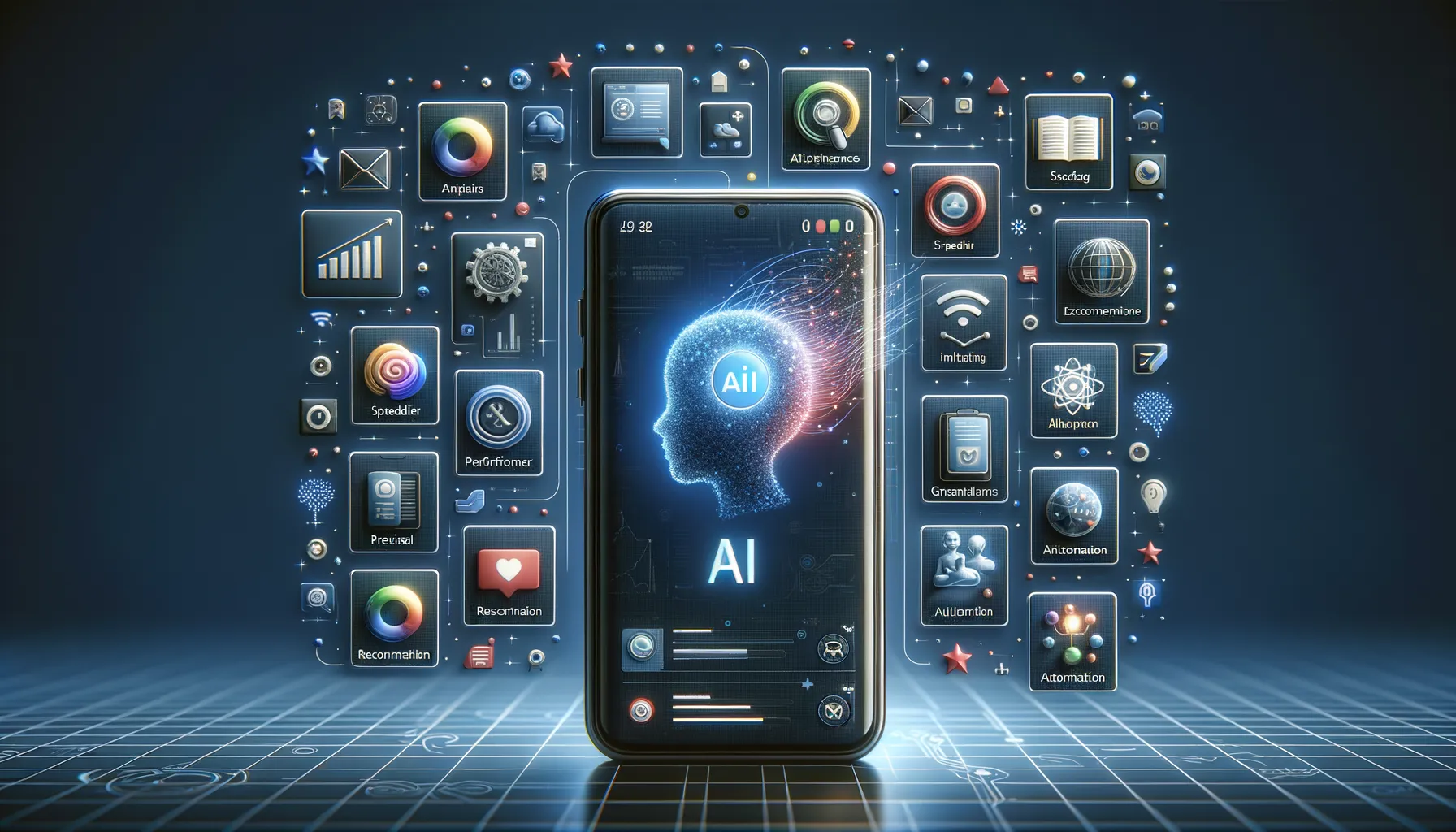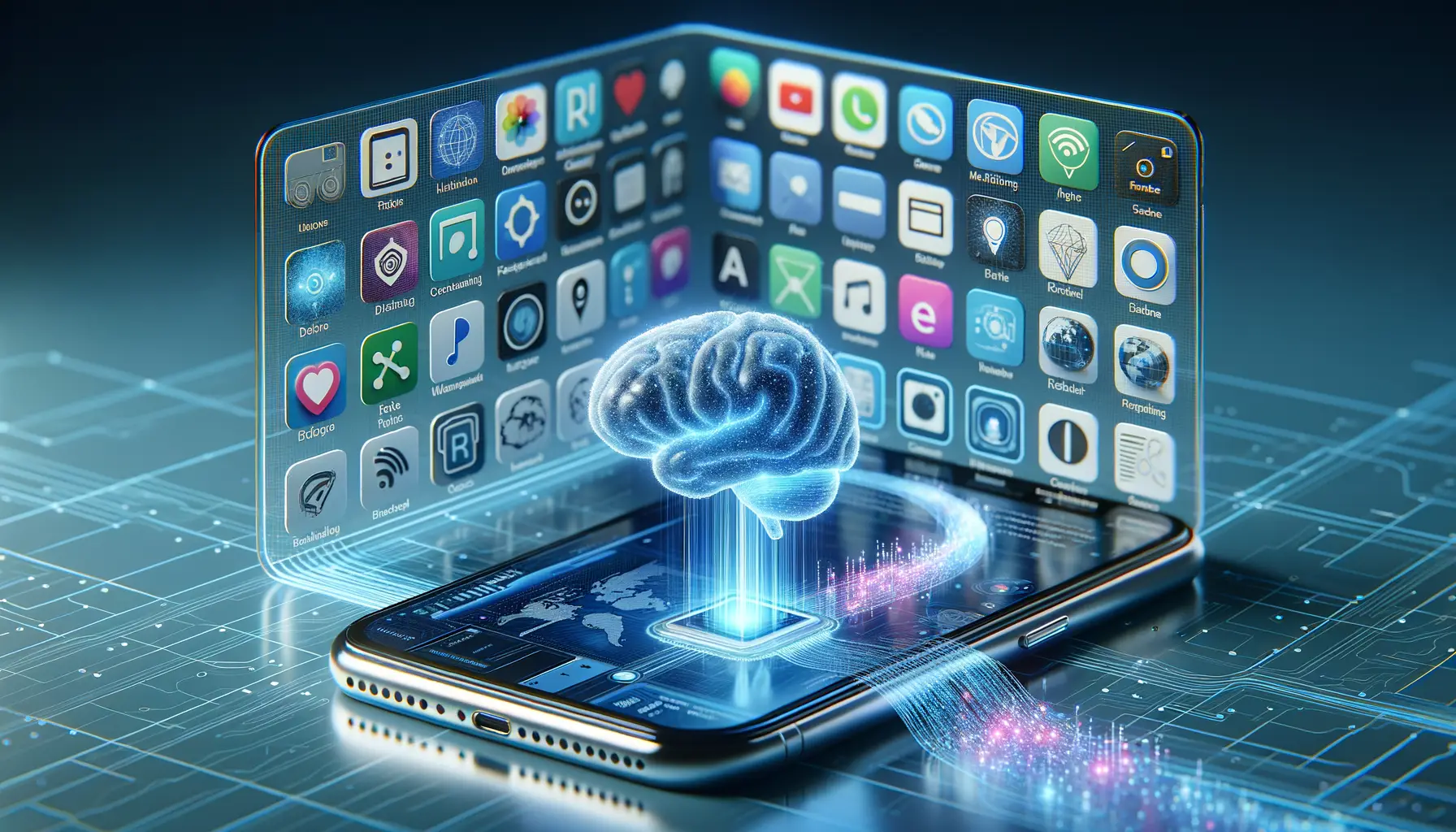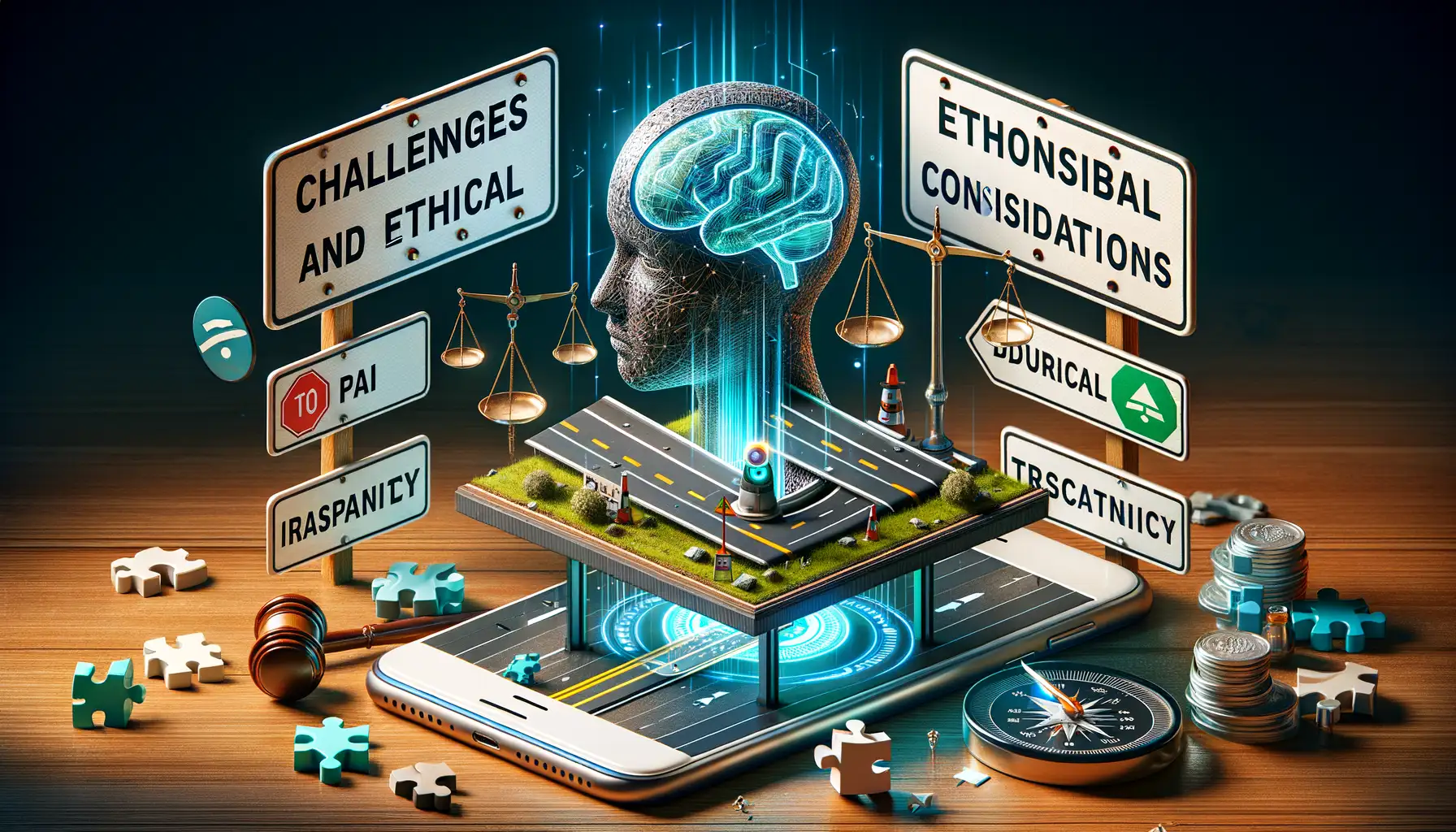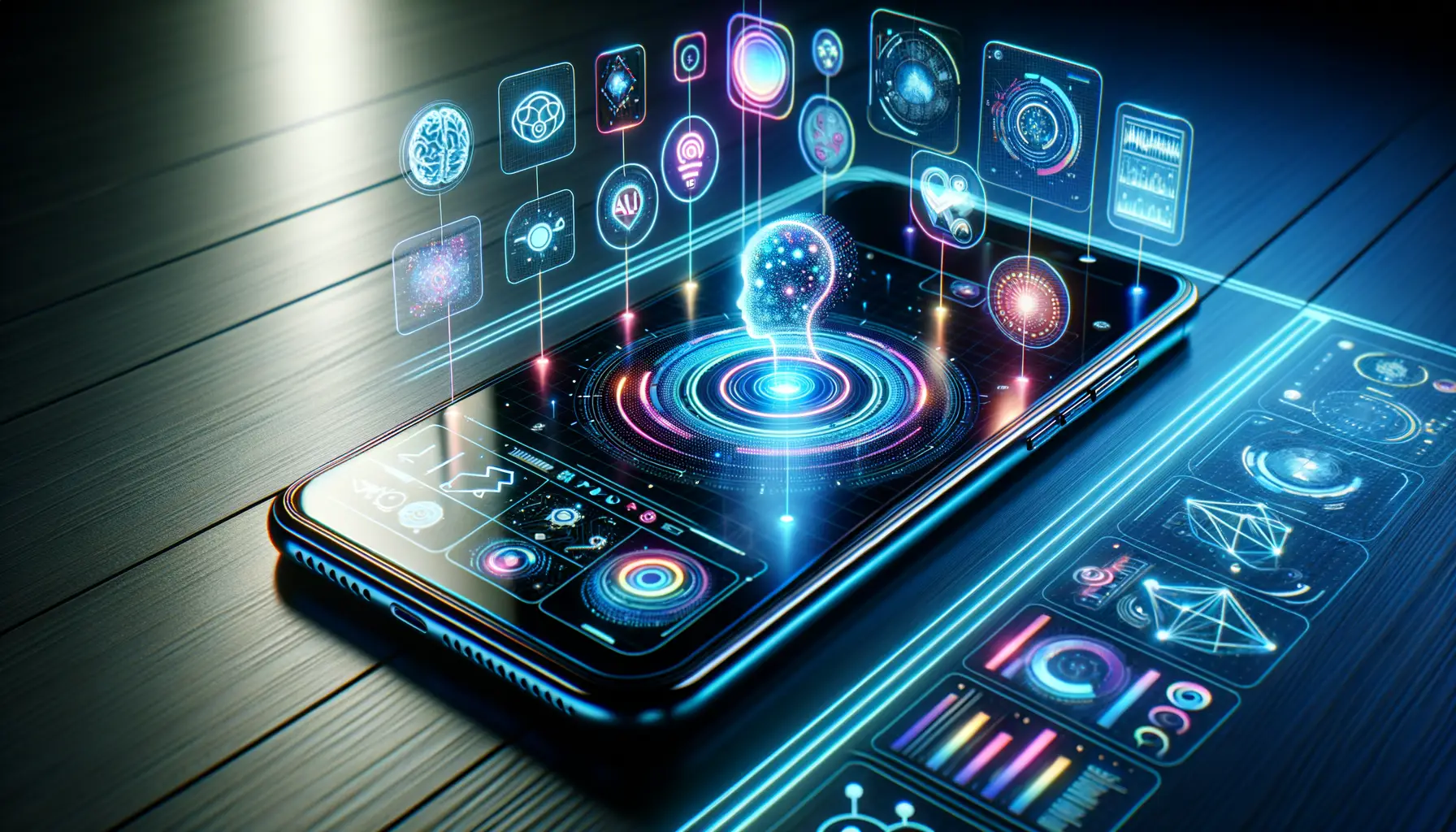Understanding the Impact of AI on Smartphone App Development
How AI Breathes New Life into App Development
The magic of smartphone apps is no longer a secret recipe; it’s AI. Imagine app developers as sculptors, chiseling raw ideas into functional works of art. Now, add an AI-powered toolkit to their hands—it’s like giving them wings! From predicting user preferences to automating backend processes, AI transforms development into a blend of creativity and precision.
Let’s take coding, for example. AI doesn’t just assist—it’s like having a genius co-pilot who anticipates your next move. Need error detection? It’s done before you even blink. Beyond code, AI plays matchmaker between users and apps. Think about Netflix: its recommendation engine, powered by machine learning, doesn’t pitch random titles. It learns your quirks, your Friday-night vibes, and even those guilty-pleasure binges.
- Automating mundane tasks: Like debugging or testing functionalities, freeing developers to dream bigger.
- Enabling hyper-personalization: Apps speaking directly to the user as if they’ve been lifelong buddies.
- Revolutionizing design: With tools that suggest layouts based on previous designs or even user behavior.
The Ripple Effect on Every Step of Development
AI isn’t confined to the tech-savvy elite; it’s democratized creativity. Take voice assistants like Google Assistant or Siri. Behind their smooth interface lies complex natural language processing. Developers now build conversational features into apps with little fuss. Once a pipe dream, chatbots and virtual helpers are now baseline expectations.
Even security, often a neglected corner of app development, is fortified by AI. Picture an invisible shield that spots threats before they knock on the door. From fraud detection in banking apps to recognizing fake profiles in social platforms, these systems evolve as hackers evolve.
The impact of AI on app development is seismic, reshaping both how apps are created and how they work. Isn’t it thrilling to imagine? The future isn’t looming—it’s already here, coded into every swipe and tap.
How AI Enhances User Experience in Smartphone Apps

Turning Everyday Apps into Personal Assistants
Imagine opening your favorite fitness app and it already knows you’ve had a rough day. It suggests a calming yoga routine instead of your usual cardio session. That’s not magic—it’s the work of AI-driven personalization. By analyzing your habits, preferences, and even your location, AI transforms apps from ordinary tools into tailored companions.
Think about how Netflix predicts what you’ll binge next or how Spotify curates your daily mix. This isn’t guesswork. AI dives deep into your data, creating hyper-personalized experiences that feel like the app just “gets you.” And it’s not limited to media—shopping apps? They’ll recommend products based on your browsing history. Food delivery apps? They’ll suggest dinner before you even think about ordering.
- Predictive suggestions: Your app anticipates what you need before you need it.
- Smarter interfaces: Voice commands? Check. Gesture controls? Absolutely.
- Real-time adaptability: Apps adjust on the fly, like Google Maps rerouting during traffic jams.
From Functional to Emotional: The AI Difference
AI doesn’t just make apps functional; it makes them emotional. Ever noticed how chatbots like those in bank apps respond warmly when you’re stressed about finances? That’s empathy, powered by natural language processing. AI mimics human-like response patterns, creating interactions that feel comforting, not robotic.
And let’s talk visuals. Apps with AI-powered image recognition boost inclusivity—Snapchat filters, anyone? For those with visual impairments, this tech scans the world and narrates it back, breaking barriers one app at a time.
By embedding real-time analytics and intelligence into apps, developers aren’t just building software—they’re creating memorable, intuitive moments that stick with users.
AI-Driven Innovations Transforming Mobile Applications

Smart Algorithms Redefining Everyday Mobile Experiences
Picture this: your smartphone knows you so well, it feels like a trusted friend. That’s the magic of AI-driven innovations. These aren’t just fancy tech tricks—they’re game-changing tools reshaping how we interact with mobile apps.
Imagine opening your favorite shopping app, and within seconds, it suggests not only what you’re looking for but items you didn’t realize you needed. That’s the power of predictive analytics. With every tap, AI learns your preferences, turning guesswork into precision.
- Health apps analyzing your daily activity to give tailored fitness plans.
- Finance apps predicting when you’ll hit your savings goals based on spending trends.
- Even camera apps using AI filters to enhance your photos naturally!
Revolutionizing App Development With AI Tools
Developers, here’s something that’ll make your heart race: AI isn’t just improving apps; it’s revolutionizing how they’re built. Instead of manually coding every detail, modern platforms use AI-powered automation to identify bugs and even suggest solutions.
Take this a step further—think apps that teach themselves. Through self-learning algorithms, mobile applications adapt behavior without relying on endless updates. A personal favorite? AI enabling real-time translation tools. They bridge linguistic gaps faster than you can say “hello” in Japanese!
If you ask me, today’s mobile apps aren’t just smarter; they’re practically visionary thinkers inside your pocket.
Challenges and Ethical Considerations with AI in Apps

When Technology Meets Complexity
Artificial Intelligence in smartphone apps feels like magic—until you peel back the curtain and see the challenges lurking underneath. Developing AI-powered apps is no simple feat. Imagine training an intelligent assistant to predict your food cravings or suggest workout plans. Sounds helpful, right? But behind that sleek convenience lies a mountain of concerns.
First off, there’s the question of data quality. AI needs vast amounts of information to learn, but what happens when the data is biased, incomplete, or mismanaged? The result? Algorithms that unfairly favor certain users or deliver results that feel… off.
Another challenge? Privacy vs. personalization. AI thrives on knowing you—your habits, routines, even your quirks. But how much personal info are you comfortable giving away?
- Who controls that sensitive data?
- How secure is it when it’s sitting on servers halfway across the globe?
The Ethical Dilemmas We Can’t Ignore
Let’s get real for a second: AI doesn’t make decisions; we program it to. So, when an app’s facial recognition struggles to identify someone because of their skin tone, who’s accountable? Developers? Companies? Society itself?
And then there’s the murky world of deepfakes or AI-crafted misinformation. What should be a tool to create art, organize our lives, or enhance accessibility can also do serious harm in the wrong hands. It’s a balancing act—and right now, we’re still figuring out which way to lean.
The Future of AI-Powered Smartphone Applications

The Boundless Potential of AI in App Evolution
Picture this: You pull out your smartphone, and with a single tap, an app not only predicts what you’re looking for but also tailors the entire experience to feel like it was *made just for you*. This isn’t the plot of a futuristic movie — it’s exactly where AI-powered smartphone apps are heading. The fusion of artificial intelligence and mobile technology is reshaping how we interact with our devices, blending convenience, creativity, and connection in ways that were once unimaginable.
Imagine apps that can do more than just recognize your voice. They could soon understand your emotions simply by *how* you speak or type. Through advanced machine learning, these apps will adjust their tone or offer assistance when they detect stress or excitement in your responses. It’s like having a personal assistant that knows when to bring you coffee and when to leave you alone to focus.
- Hyper-personalization: From travel to fitness apps, AI will analyze patterns unique to you, delivering recommendations before you even realize you need them.
- Real-time problem solving: Whether it’s identifying a song playing at a café or diagnosing a plant’s health, AI-powered tools will simplify life’s questions in seconds.
Envisioning AI as Your Everyday Companion
Forget apps that merely follow instructions. We’re talking about intuitive systems that anticipate, learn, and grow alongside you. For instance, consider language learning apps that adapt their teaching style based on how you process information — offering games, videos, or puzzles in response to your preferences. Even dating apps may evolve into relationship mentors, providing conversation tips or analyzing compatibility beyond surface-level algorithms.
And this is just scratching the surface. Apps might soon help doctors diagnose illnesses via uploaded photos or allow architects to create 3D blueprints right from their phones. With AI pushing boundaries, your smartphone won’t just be smart — it might feel *alive*.
